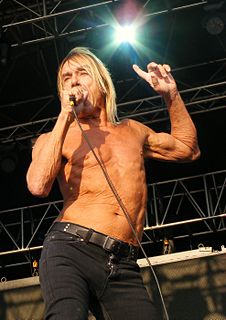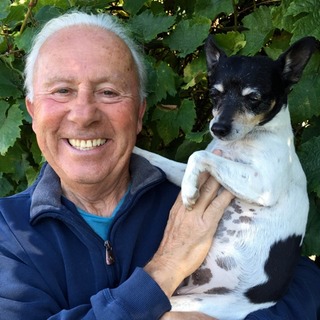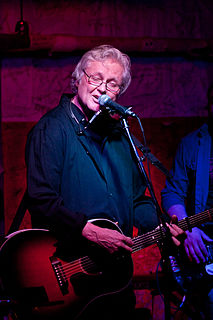A Quote by Al Pacino
I had these little babies [my twins] and it gave me something so spectacular, such a feeling - I was so turned on and so excited by them that I wrote a poem. I had it on scraps of paper and the maid threw it out.
Related Quotes
In seventh grade I had a magical teacher, her name was Mrs. Fried. She wore only pink, she drove a pink Mustang, and she was half out of her head. But very inspiring. And one day she said, "Take out a paper and pen and write something about peace." For some reason I wrote a poem on Noah - I don't know why I chose Noah - and it turned out it was for a contest for the UN. I ended up winning and reading the poem in front of the UN. I remember Mrs. Fried telling me, "When you write your first book, dedicate it to me." That was like, "Whoa."
I always wrote. I wrote from when I was 12. That was therapeutic for me in those days. I wrote things to get them out of feeling them, and onto paper. So writing in a way saved me, kept me company. I did the traditional thing with falling in love with words, reading books and underlining lines I liked and words I didn't know.
When I turned 45, I lay in bed reflecting on all life had taught me. My soul sprang a leak and ideas flowed out. My pen simply caught them and set the words on paper. I typed them up and turned them into a newspaper column of the 45 lessons life taught me. When I hit 50, I added five more lessons and the paper ran the column again.
I could feel myself changing physically. It was like something dropped out of the sky. Seeing her on the fire escape had given me a certain feeling, and then when I saw the photograph of her, it gave me a similar feeling. And I thought that was an incredibly powerful thing - that a photograph could give you a feeling that was similar to a feeling you had in the physical world. Nobody could've told me that. I knew what I was going to do for the rest of my life.
I had a dream, in 1985, I believe, when a friend I'd gone to school with was sick - one of the first people I knew who'd gotten the AIDS virus. I had a dream of him in his bedroom with an angel crashing through the ceiling. I wrote a poem called 'Angels in America.' I've never looked at the poem since the day I wrote it.
I could send myself right back to the day that I wrote "Angel Of The Morning," how it felt. I had a buzz through me that morning that was so powerful. I knew I had done something that meant something, because of that feeling. It wasn't a question of whether other people liked it ... I loved it. To me, it had to be one of the most important love stories of all time.
Clay Felker was then - he had - to his credit, he had created New York Magazine, which was the first of the city magazines that covered the city and gave all kinds of advice and all that sort of stuff. And there were copies all over the country by the time he left. He had, however, a view of journalism that was very much, I must say, like Tina Brown's at The New Yorker. You hit 'em hard, fast, give 'em something to talk about the day after the paper comes out, as contrasted with William Shawn, who gave them something to talk about two or three years from then.
I didn't like what was on TV in terms of sitcoms?it had nothing to do with the color of them?I just didn't like any of them. I saw little kids, let's say 6 or 7 years old, white kids, black kids. And the way they were addressing the father or the mother, the writers had turned things around, so the little children were smarter than the parent or the caregiver. They were just not funny to me. I felt that it was manipulative and the audience was looking at something that had no responsibility to the family.




































